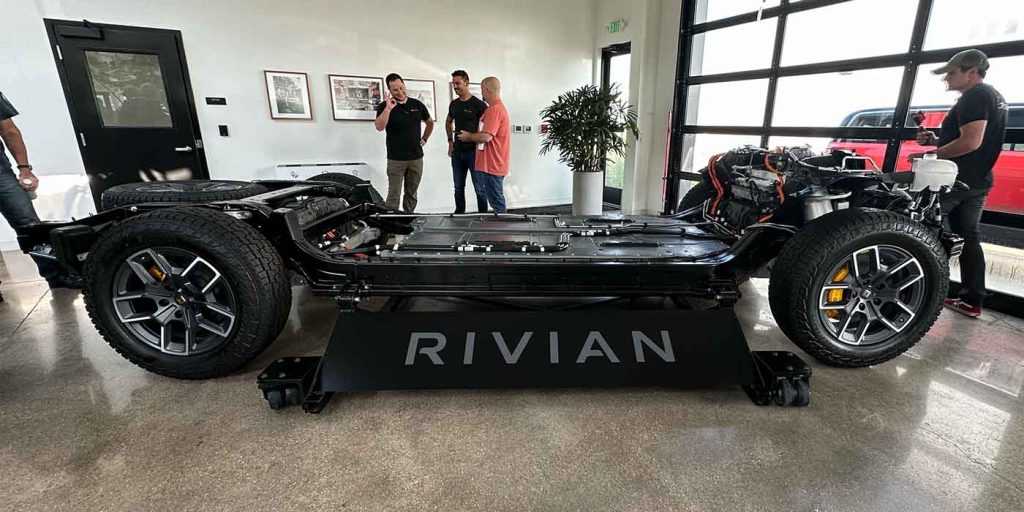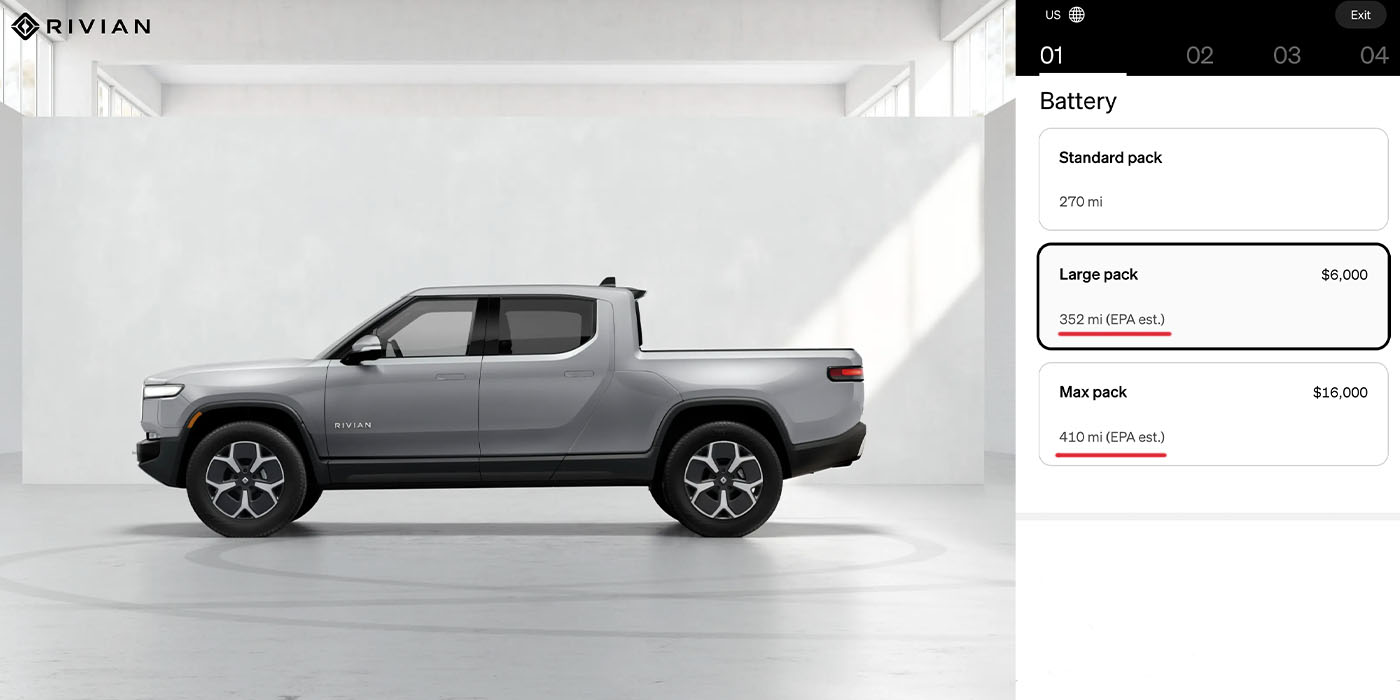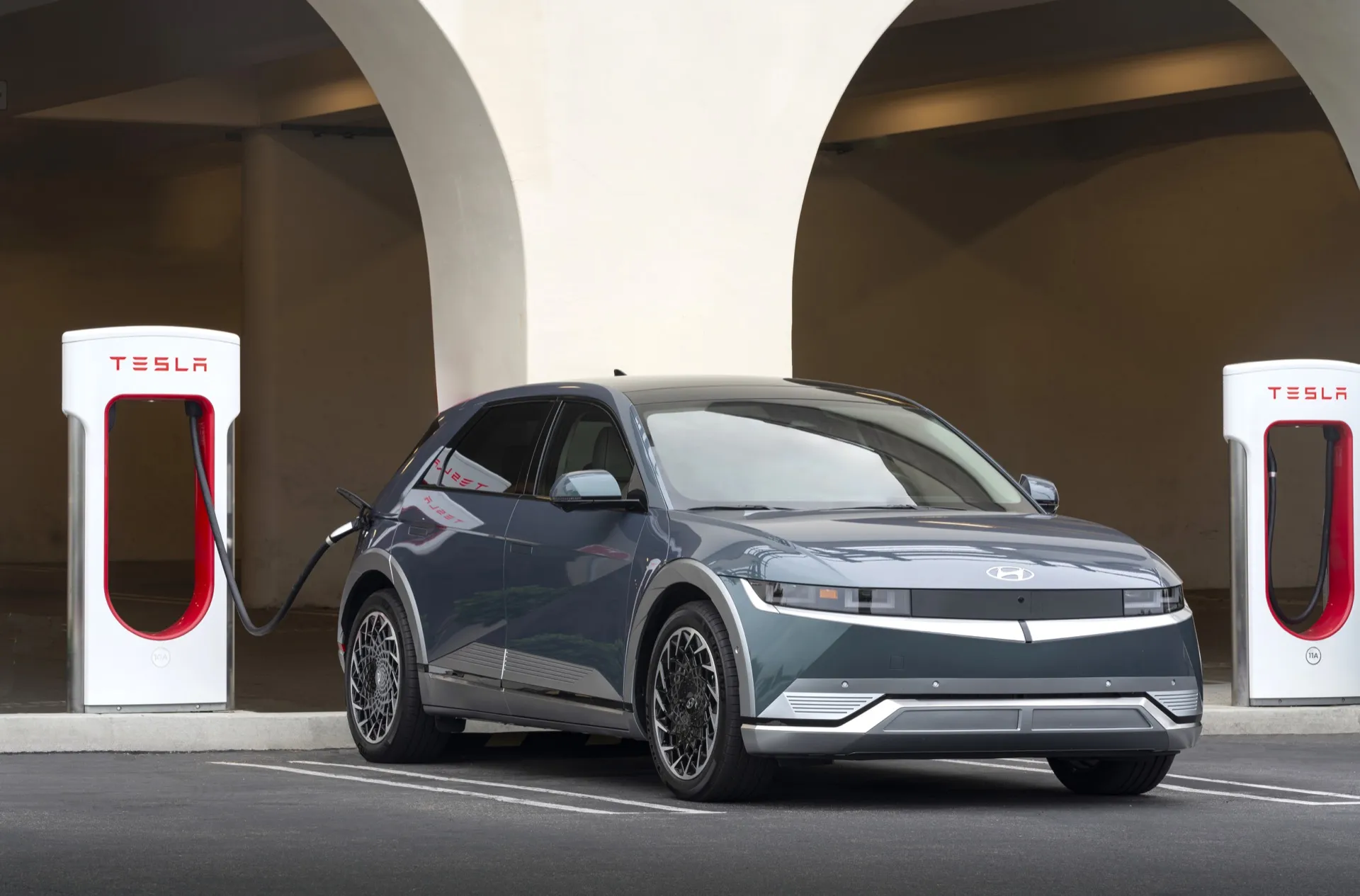Two months after Rivian started delivering EVs with its long-anticipated Max battery pack, we’ve seen our first real-world range comparison, and the results are… just ok. Despite over 50 miles more EPA range than the Large Pack, the first real-world tests show that the gap is significantly narrower.
Rivian ($RIVN) is exiting 2023 a lot better off than it began the year. After pausing EV production to optimize its assembly lines early on, the American automaker has continued to scale in Normal, IL, as it erects its second plant in Georgia.
The automaker’s Q3 report offered better-than-expected production numbers, alongside steady interest from US consumers, allowing Rivian to maintain its price points while continuing to ramp up production of EDVs and R1 EVs.
Rivian is currently contribution margin positive on both its EDVs and R1 vehicles, and company CFO Claire McDonough expects the automaker to become gross margin positive in 2024. Some of the appeal to consumers eyeing a new Rivian R1T or R1S purchase has been the arrival of the Max battery pack, which finally started reaching customers this past October.
Promising an EPA range of 410 miles on a single charge, the Max Pack looks like a monster on paper compared to Rivian’s other battery options. However, a recent video showing a real-world range comparison with the Large Pack might soon have consumers thinking twice.

Is Rivian’s $10k Max battery pack upgrade worth it?
Until October 2023, Rivian customers could only obtain delivery of their shiny new R1S or R1T if they opted for the Standard or Large battery packs, delivering 270 and 352 miles of electric range, respectively.
However, many reservation holders held out for an electric truck with Rivian’s Max pack, promising a whopping 410 miles of EPA estimated range. Kyle Conner and the team at Out of Spec Reviews took two R1Ts – one with the Large Pack and one with the Max Pack – and put them through the same tests, only to find a marginal difference in real-world range, despite the $10,000 price difference.
While the EPA range difference between the Large and Max Packs is listed at 58 miles, Out of Spec’s comparison detailed a much closer race – a mere 22 miles. Since the Max Pack is significantly more expensive (an additional $16,000 compared to $6,000 for the Large battery), it begs the question if it is worth it to would-be Rivian customers.
Here’s another kicker. We’ve learned the Max Pack is the same size as the $6,000 option, just more efficient and energy-dense. A spokesperson for Rivian told Electrek that the automaker does not divulge battery capacities in its EV specs but did confirm the Max Pack offers a total battery capacity of 149 kWh – all in the same footprint as the Large Pack without adding weight.
The spokesperson shared that Rivian’s engineers achieved this by implementing a proprietary battery management system unique to the Max Pack that optimizes and increases its usable energy from a new version of Rivian’s 2170 battery cells. The result is higher energy density and absolute energy without requiring more modules or significantly more weight.
That, again, sounds promising on paper, but the real-world results appear much more marginal as the Max Pack offers 11-12 additional kWh of battery capacity that translates to 22 miles of range. This is obviously one test and not gospel, but it does beg the question of whether Rivian’s Max battery pack is worth shelling out an extra $10,000. Following the real-world tests, the Out of Spec team even questioned whether their Max Pack R1T test vehicle was defective. Or perhaps it needs a software update to see the full advantages of the new battery?
What do you guys think? Let us know in the comments below.
FTC: We use income earning auto affiliate links. More.




